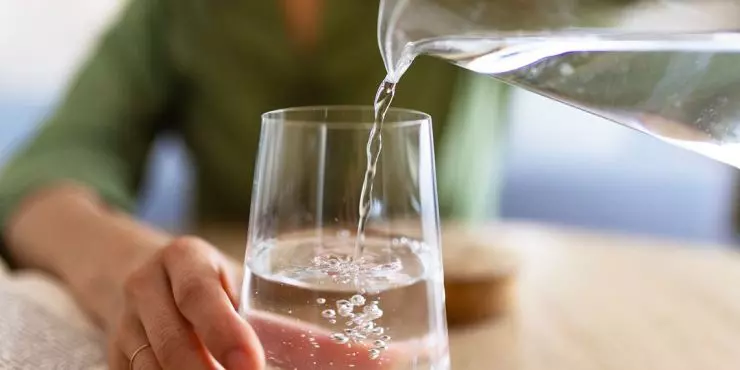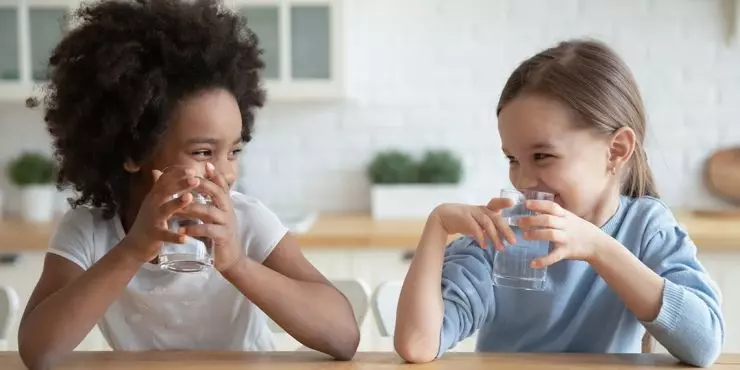
Whether you're chasing toddlers, caring for aging parents, or simply trying to drink more water yourself, hydration is one of the most underrated pillars of health. It's easy to overlook, but staying properly hydrated affects everything from brain function and energy levels to digestion and immune health.
At Northwest Family Clinics, we talk about hydration a lot—and for good reason. Understanding how your body uses water (and how much it really needs) is one of the simplest ways to support your health and well-being at every age.
Why Is Hydration So Important?
Your body is about 60% water. Even mild dehydration (losing as little as 1–2% of your body’s water) can cause noticeable symptoms like fatigue, poor concentration, and dizziness. For kids and older adults, the impact can be even more significant.
Water plays a vital role in:
- Regulating body temperature
- Protecting organs and joints
- Helping digestion and nutrient absorption
- Flushing out waste through urine and sweat
- Maintaining healthy skin and energy levels
- Preventing headaches, fatigue, and brain fog
How Much Water Do I Really Need?
The amount of water each person needs depends on age, activity level, climate, and individual health needs—but here are general daily hydration guidelines:
Infants (0–6 months): Get all hydration from breastmilk or formula. No additional water needed unless advised by a doctor
Babies (6–12 months): Small amounts of water can be introduced (about 4–8 oz/day) but try to wait until your baby is 1 year old. Be sure to still continue giving breastmilk or formula at the recommended amount. Avoid replacing milk with water—hydration is still primarily from milk.
Children (1–8 years): 4–7 cups per day, including water, milk, and other fluids. Encourage water with snacks and after active play.
Tweens & Teens (9–18 years): Girls: 7–9 cups/day and boys: 8–11 cups/day. Needs go up with sports, heat, or growth spurts.
Adults (19–60 years): Women: 9 cups/day and men: 12–13 cups/day. Needs increase with exercise, heat, or illness
Older Adults (60+ years): Aim for at least 8–10 cups/day, even if you don’t feel thirsty. Aging reduces thirst cues, so sipping regularly is important
Quick tip: Fluids include water, milk, juice, soup, and hydrating foods like fruits and veggies. But water should be your number one go-to.

Signs You’re Dehydrated
Thirst is one sign—but it’s often a late sign. Others include:
- Dark yellow urine
- Headaches
- Dry mouth or lips
- Fatigue or dizziness
- Constipation
- Less frequent urination (especially in kids)
If you’re unsure, a good rule is: light yellow urine = hydrated. Dark = drink more.
Hydration Tips for Every Age
Babies & Toddlers
Offer water in a sippy cup with meals starting at 12 months
Use fruits with high water content (like watermelon and oranges)
Watch for signs of dehydration: dry lips, fewer wet diapers, or fussiness
Young Kids
Make water fun! Try colorful cups, silly straws, or fruit-infused water
Offer water regularly—don’t wait for them to ask
Pack a water bottle for school and activities
Find more tips for keeping your children hydrated here.
Teens
Encourage water over soda and energy drinks should be avoided
Teach the 8x8 rule: 8 cups of 8 oz water per day as a baseline
For athletes, promote electrolyte drinks only after intense activity—not daily use (be sure to watch out for added sugar in these types of drinks)
Adults
Keep a reusable water bottle on hand
Pair water with routines—like a glass after brushing your teeth or before each meal
Use herbal teas or flavored water for variety
Older Adults
Set reminders or use apps to encourage regular sipping
Flavor water with lemon, mint, or cucumber if taste is a barrier
Monitor for signs of dehydration: dry skin, confusion, dizziness, or low urine output
Frequently Asked Questions About Hydration
Can I drink too much water?
Yes—though rare, overhydration (called hyponatremia) can dilute the sodium in your blood. This is typically only a concern in endurance athletes or with excessive water intake in a short period. Stick to your body's cues and drink consistently throughout the day.
Is coffee or tea dehydrating?
No—moderate caffeine intake doesn’t cause dehydration. Coffee and tea still contribute to your fluid intake, but plain water is still best.
What about during illness?
Fever, vomiting, and diarrhea can cause dehydration fast—especially in children and older adults. Offer small sips of water or oral rehydration solutions (like Pedialyte), and call your doctor if signs of dehydration appear.
Do foods count toward hydration?
Yes! Many fruits and vegetables are 90%+ water. Great hydrating foods include:
- Watermelon
- Strawberries
- Cucumber
- Lettuce
- Oranges
- Yogurt
- Broths and soups
Hydration Is a Daily Habit Worth Building
Water isn’t just about quenching thirst—it’s about helping your body function at its best. From the tiniest baby to the most active grandparent, hydration plays a major role in energy, digestion, mental clarity, and immune health.
At Northwest Family Clinics, we’re here to care for your whole family—and that includes helping you stay well between visits. If you have questions about hydration, nutrition, or how to support your child’s or parent’s health, give us a call. We’re always happy to help.